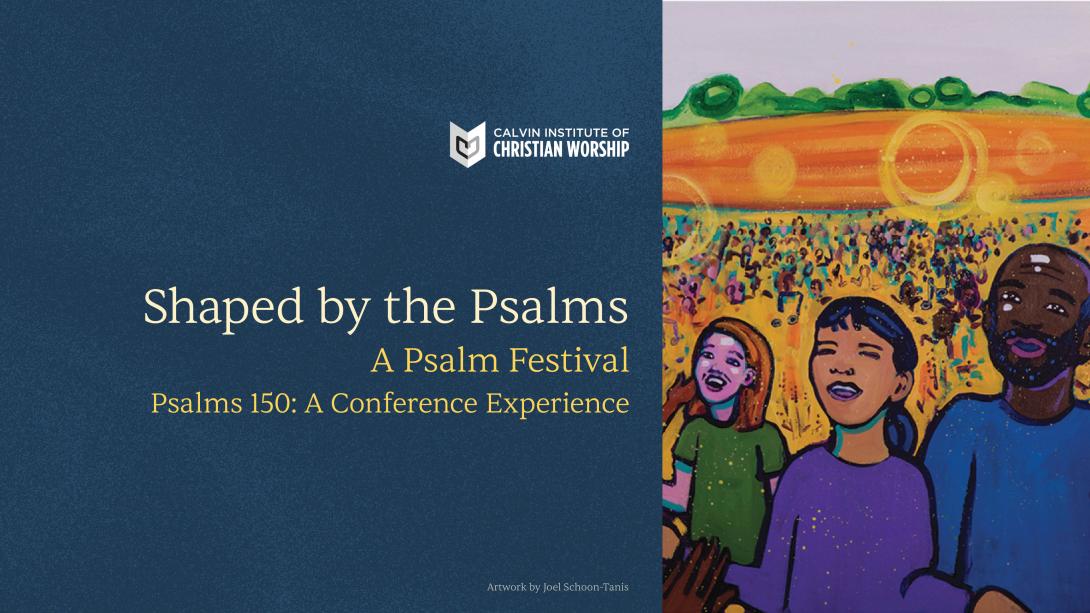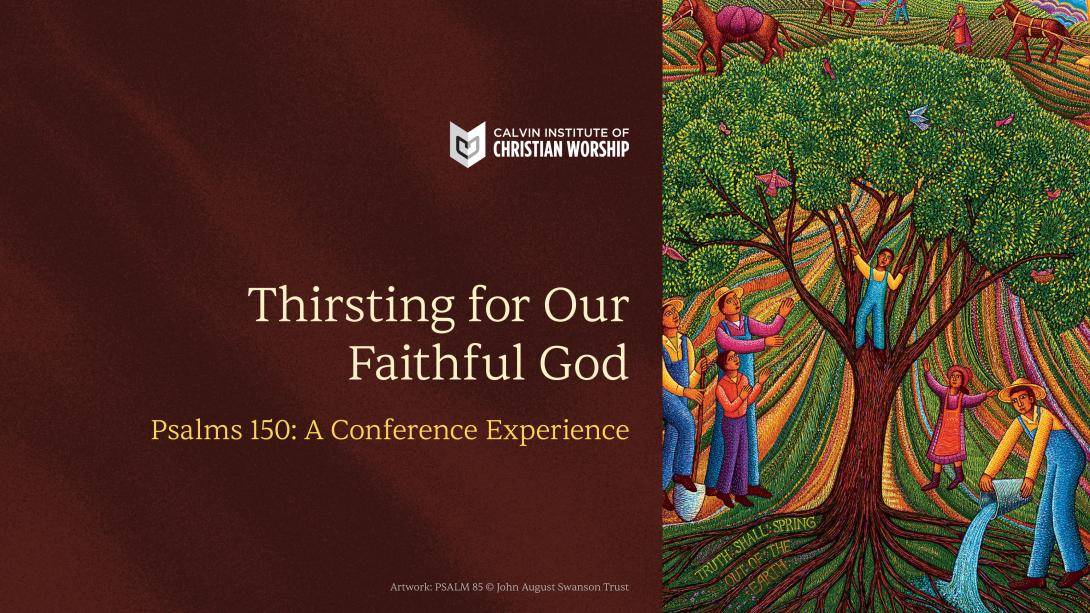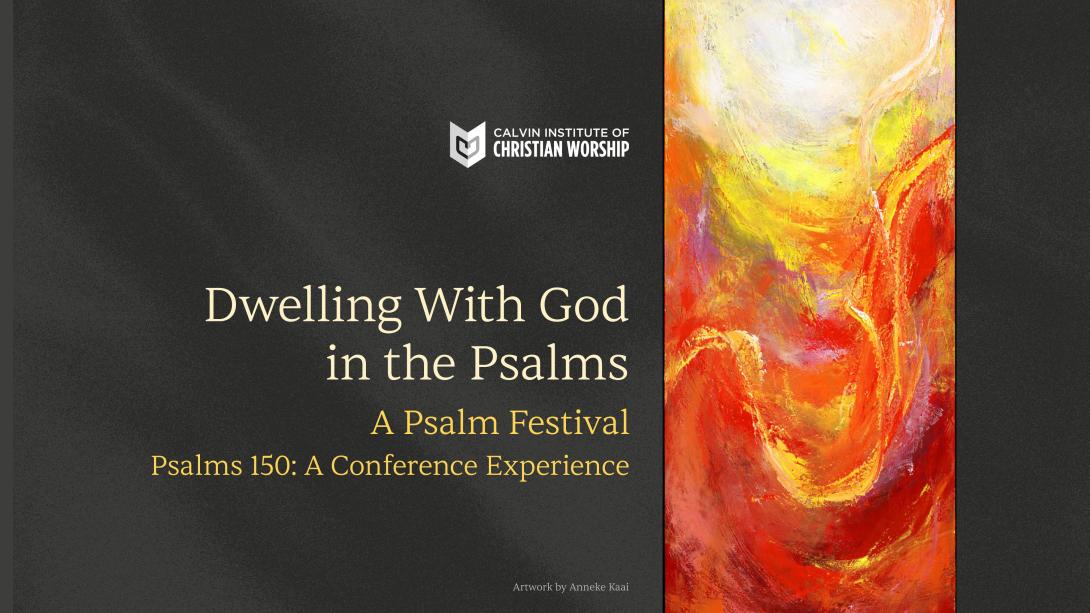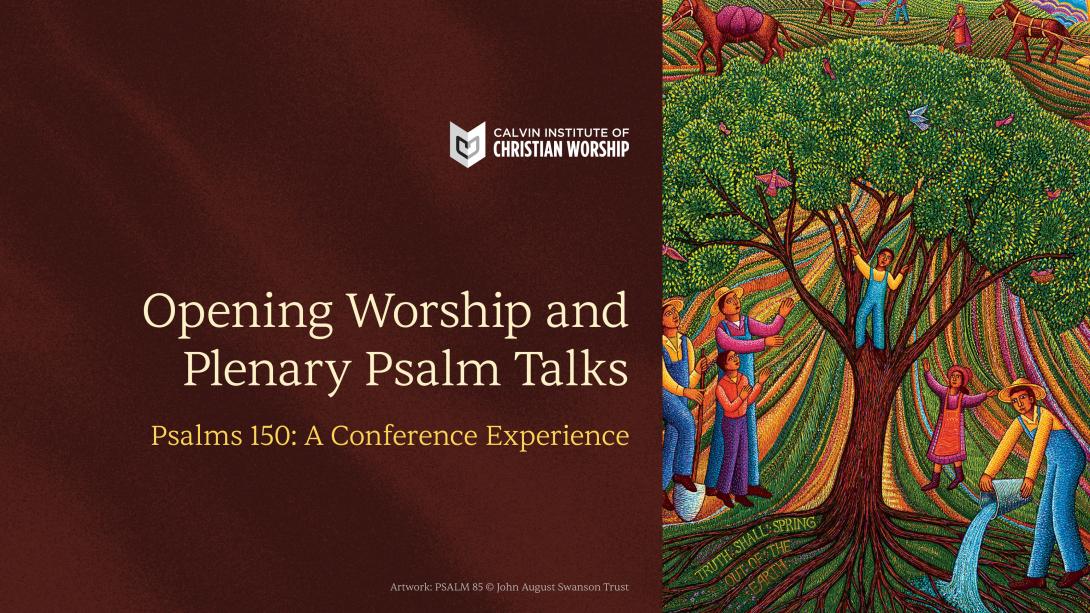Luther and Calvin often remarked that the psalms express the whole spectrum of human emotions, making the psalms a compelling tool of instruction for the church. Calvin famously called the psalms an “anatomy of all the parts of the soul” and saw them as a central key to unlocking the teachings of Scripture and illuminating the central spiritual practices of the Christian life (i.e., worship and prayer). This workshop explored several ways that Luther and Calvin employed the psalms to support Christian practices of worship, prayer, and discipleship (i.e., spiritual formation). We looked at key themes in their interpretation of the psalms with an eye to comparisons and contrasts between Luther and Calvin and a focus on a handful of psalms as case studies.
Summary
Listen Online
Details
Recent Media Resources
Shaped by the Psalms: A Psalm Festival
Psalm Festival Worship led by Jared Alcántara; Vinroy D. Brown Jr.; Bellwether Arts; Karen Campbell; Calvin University’s Capella choir, directed by Mark Stover; Calvin University’s Gospel Choir, led by Nate Glasper; Celtic Psalms; and Rawn Harbor; with artwork by Joel Schoon-Tanis
Thirsting for our Faithful God
Morning Worship led by staff of the Calvin Institute of Christian Worship, with Psalm Talks by Terry M. Wildman and Darlene Wildman, Karen Campbell, and Rawn Harbor, and artistic responses by Dea Jenkins and Joel Schoon-Tanis.
Dwelling with God in the Psalms
Closing Psalm Festival Worship led by Amanda Benkhuysen, Bellwether Arts, Celtic Psalms, Anneke Kaai, Darlene Wildman, and Terry Wildman.
Shaped by the Psalms: A Psalm Festival
Psalm Festival Worship led by Jared Alcántara; Vinroy D. Brown Jr.; Bellwether Arts; Karen Campbell; Calvin University’s Capella choir, directed by Mark Stover; Calvin University’s Gospel Choir, led by Nate Glasper; Celtic Psalms; and Rawn Harbor; with artwork by Joel Schoon-Tanis
Thirsting for our Faithful God
Morning Worship led by staff of the Calvin Institute of Christian Worship, with Psalm Talks by Terry M. Wildman and Darlene Wildman, Karen Campbell, and Rawn Harbor, and artistic responses by Dea Jenkins and Joel Schoon-Tanis.
Dwelling with God in the Psalms
Closing Psalm Festival Worship led by Amanda Benkhuysen, Bellwether Arts, Celtic Psalms, Anneke Kaai, Darlene Wildman, and Terry Wildman.
Opening Worship with Psalm Talks with Artistic Responses
Worship led by Calvin University Worship Apprentices and mentor Paul Ryan, with Psalm Talks by Amanda Benckhuysen, Jared E. Alcántara, and Cynthia Eriksson, and artistic responses by Dea Jenkins and Joel Schoon-Tanis.





